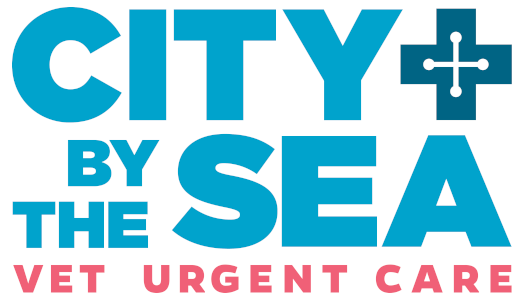Learning More About Common Dog Cancers at City By The Sea Veterinary Hospital
What are the most common types of cancers you see in dogs in the clinic?
We see a lot of different types of cancer in dogs. The ones that are most obvious are often our skin tumors that we can find during our examination. But we also see certain types of breast cancer, bone cancer, bladder tumors, and bone tumors, etc. Basically, anything that humans can get, dogs can get as well.
What are some causes of cancers in dogs?
We find that most cancers in dogs have a strong genetic component. So, based on the breed, we can guess what types of cancer they are at risk for. There are some cancers that are also linked to toxins and environmental changes, but I would say the vast majority are breed-related for dogs.
What are some clinical signs a pet owner should be aware of that signify cancer in dogs?
That is a difficult question. Some cancers are obvious to the eye. If there's something on their skin or below their skin, we can often find it during our physical exam. But many cancers can have very, very vague symptoms. So oftentimes we're looking for weight loss, major changes in their appetite or energy levels, or any huge changes in their overall behaviors to make us start looking for abnormalities such as cancer.
What will the veterinarian do to diagnose my dog with cancer?
Typically, we will start with a really thorough physical exam. Sometimes that's enough to clue us in that there's a major issue such as cancer, but typically we do what are called staging tests. We will do blood work, chest X-rays, abdominal ultrasound, plus or minus take samples of the mass if it's something that we're able to access to obtain a diagnosis.
What kind of questions should I ask my veterinarian if my dog is diagnosed with cancer?
There are always a lot of questions at that point. It could be very overwhelming to get a cancer diagnosis. Most importantly, you want to know the overall survival times and the prognosis. There are some types of cancer that are going to develop rapidly and behave aggressively, in which case, we could potentially want to get the dog to an oncologist as soon as possible. Other cancers that we can treat a little bit less aggressively. Hopefully, there are some cancers that we just do surgery on and that's curative.
Is my dog required to see a specialist after being diagnosed?
Dogs are never required to see a specialist, but it is often something that we will recommend. Depending on the type of cancer, some of them we are comfortable with doing surgery or medical management to help manage their cancer, but oftentimes if it's a more aggressive type of cancer that we're worried about metastasizing and spreading to other parts of the body, we're going to recommend that a dog see a veterinary oncologist. They can perform chemotherapy and radiation therapy that we, as general practitioners, do not provide.
What does a cancer diagnosis mean for my dog?
Certainly depends on the type of cancer and how advanced it is. I will say that for most dogs, our goal in treatment is a little bit different than the goal in humans. We never want to treat dogs with massive doses of chemotherapy that are going to make them feel violently ill. So, our goal is always quality of life. We want to always balance the pet’s feeling good and managing the disease. So, we're always trying to hit that balance between treatment and maintaining quality of life for your pet.
What is the prognosis for dogs with different types of cancer?
Prognosis varies quite a bit depending on the type of cancer and how early we catch it. One of the most common cancers we see in dogs is something called a mast cell tumor. Oftentimes, if we find the cancer, we do some testing, find out it hasn't spread anywhere else, all we need to do is surgically remove the mass, and that is curative. So things like local mast cell tumors have an excellent prognosis. Dogs can live a normal life expectancy. Other types of cancer, let's say lymphoma, for example. By the time it's detected, the cancer has often spread throughout the body. So then our goal is never a complete cure. But we want the dog to be in remission for as long as possible. So some cancers cured by surgery plus or minus chemotherapy, others we're just maintaining quality of life with medications, whether that be for months to maybe years.
What should I do if I find any new lumps or bumps on my dog?
Any new lump or bump that we find on your dog, either during our exam or the owner's notice at home when they're petting their dog, should be evaluated. Oftentimes, what we recommend is something called a fine needle aspirate. This is where we take a small needle, suck up a few cells and look at them under the microscope to get more information about that mass. Sometimes that gives us all the information that we need. Sometimes it doesn't and we need a little bit of a larger sample in which case we'll consider a biopsy where we take a sample from that mass and send a larger piece of tissue to the lab.
Is cancer treatment for dogs typically painful?
Most cancer treatment is not painful. Obviously, if they need surgery for their cancer, we're addressing that with postsurgical pain medications. Regarding chemotherapy, dogs can have side effects from chemotherapy similar to humans. Most commonly vomiting, nausea, not wanting to eat well, but we definitely have medications to manage those symptoms as well. And then this is done at specialty practices, but dogs that are candidates for radiation therapy, dogs can have minor discomfort associated with that as well. But our goal is always to control symptoms and keep pets comfortable. So, we definitely take their overall comfort level into account when creating a treatment plan for them.
What does it mean for my dog to be in remission from cancer?
When dogs are in remission, that means we have treated the cancer to a point where it's not detectable on any tests. So, if we did blood work and ultrasounds, we would see no evidence of cancer. The hope is that remission lasts a long time, months to years. But anytime a dog is in remission from cancer, we still recommend following up with routine screening so that if the cancer comes back, we can catch it in the earlier stages of the disease.
What should I do if my dog's cancer progresses or recurs?
This is something that I usually recommend consulting with a veterinary oncologist about. Depending on the type of cancer, sometimes we'll just repeat their previous treatment protocols if they did well. For certain types of cancer, they can tend to outsmart some of the conventional therapies, in which case, we need to change their chemotherapy protocol.
If you have questions, we would love to answer them for you. Please give us a call at the office at (848) 217-5000, or you can email us at [email protected]. Our staff would love to talk with you!
Don't forget to follow us on social media Facebook, Instagram.


